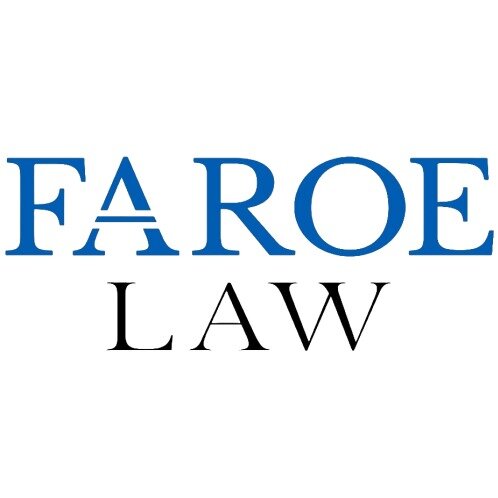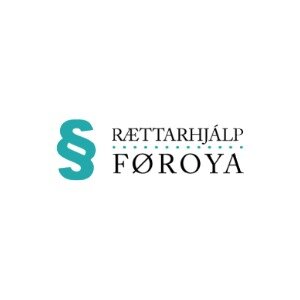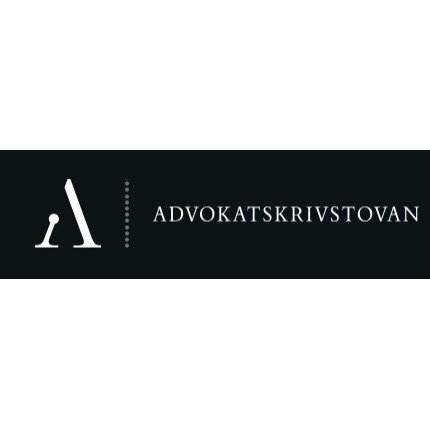Best Water Law Lawyers in Faroe Islands
Share your needs with us, get contacted by law firms.
Free. Takes 2 min.
Or refine your search by selecting a city:
List of the best lawyers in Faroe Islands
About Water Law in Faroe Islands
Water Law in the Faroe Islands refers to the collection of rules and regulations that govern the use, management, protection, and distribution of water resources within the territory. Due to the islands' unique geography and reliance on natural water sources for drinking, fishing, aquaculture, and energy production, water law affects a wide range of economic and environmental interests. These laws are influenced by local statutes, administrative orders, as well as international agreements, especially given Denmark's overarching influence and the autonomous status of the Faroe Islands.
Why You May Need a Lawyer
Legal assistance in Water Law is often necessary due to the complexities and competing interests related to water use in the Faroe Islands. You may need to consult a lawyer in situations such as:
- Obtaining or disputing water rights for land development or aquaculture projects
- Responding to government regulations or inspections related to water quality and waste disposal
- Involvement in environmental disputes, such as pollution cases or the impact of development on water ecosystems
- Negotiating agreements for shared use of water resources between public and private entities
- Pursuing compensation for damages caused by flooding or water contamination
Navigating these issues without professional guidance can result in legal or financial risks, including fines, project delays, or the loss of water rights.
Local Laws Overview
The legal landscape of Water Law in the Faroe Islands is shaped by several local statutes and administrative acts. Key aspects include:
- Water Rights Allocation: Permissions for extracting and using water are often required for commercial purposes, especially for fisheries and aquaculture operations. These regulations strive to balance private, public, and environmental interests.
- Water Quality Standards: Local agencies set guidelines for acceptable levels of contaminants in water sources to protect both human health and the ecosystem.
- Pollution Control: There are specific rules on waste management and discharges into water bodies, with strict penalties for unauthorized pollution.
- Infrastructure Regulation: Construction and maintenance of water-related infrastructure, such as pipelines, dams, or reservoirs, are subject to permits and oversight from relevant authorities.
- Fisheries and Aquaculture: The use of water for the fishing industry is heavily regulated, prioritizing sustainable practices and ecosystem protection.
- Dispute Resolution: The process for resolving disputes over water use may involve administrative agencies, courts, or mediation depending on the matter at hand.
Frequently Asked Questions
What are water rights in the Faroe Islands?
Water rights determine who is entitled to use certain water sources and for what purpose. These rights can be granted by local authorities and are subject to conditions and public interest considerations.
Do I need a permit to use water for my business?
Yes, using water for commercial activities such as aquaculture, fish processing, or industrial purposes typically requires a permit from the relevant government agency.
How are water quality standards enforced?
Government agencies conduct regular inspections and testing to monitor water quality. Non-compliance with established standards can result in penalties or suspension of operations.
What should I do if my property is affected by water pollution?
Contact local authorities to report the issue and consult a legal expert to explore your options for compensation or remediation.
Are there restrictions on developing land near water sources?
Yes, building or altering land near protected water sources usually requires environmental impact assessments and government approval.
Can traditional or customary water uses be protected by law?
Some traditional uses may be recognized, especially if they are long-standing, but must comply with current regulations and not conflict with public safety or environmental standards.
What are the penalties for unauthorized water use or pollution?
Penalties can include fines, orders to stop operations, restoration orders, and sometimes criminal charges for severe violations.
Who regulates water use in the Faroe Islands?
Responsibility is divided between local municipal authorities and central government agencies, which issue permits and enforce regulations.
How are disputes over water rights resolved?
Disputes may be settled through administrative processes or, if necessary, by the courts. Mediation may also be an option in some cases.
Do international laws affect water management in the Faroe Islands?
Yes, as part of the Kingdom of Denmark, the Faroe Islands may be subject to relevant international agreements, especially those concerning marine environments and cross-border pollution.
Additional Resources
If you need further information or assistance regarding Water Law in the Faroe Islands, consider these resources:
- Umhvørvisstovan (Environment Agency): Responsible for environmental regulations, permits, and water quality control.
- Landsverk: Oversees infrastructure projects that may affect water systems.
- Municipal Authorities: Handle local water supply and small-scale water management issues.
- Faroese Legal Aid: Offers basic advice on legal matters including water disputes.
- Faroe Islands Fishing Associations: Provide guidance to those involved in fisheries or aquaculture.
Next Steps
If you believe you need legal assistance in Water Law:
- Identify and document your issue in detail, including any correspondence, permits, or reports.
- Contact a lawyer with experience in Faroe Islands Water Law or relevant administrative law.
- Prepare any questions or information you have so your consultation is as effective as possible.
- Follow up promptly on legal advice and comply with any regulatory deadlines.
- If applicable, reach out to the relevant governmental body for initial guidance or clarification.
Seeking early legal guidance helps to resolve issues efficiently and ensures your interests are protected under Faroe Islands law.
Lawzana helps you find the best lawyers and law firms in Faroe Islands through a curated and pre-screened list of qualified legal professionals. Our platform offers rankings and detailed profiles of attorneys and law firms, allowing you to compare based on practice areas, including Water Law, experience, and client feedback.
Each profile includes a description of the firm's areas of practice, client reviews, team members and partners, year of establishment, spoken languages, office locations, contact information, social media presence, and any published articles or resources. Most firms on our platform speak English and are experienced in both local and international legal matters.
Get a quote from top-rated law firms in Faroe Islands — quickly, securely, and without unnecessary hassle.
Disclaimer:
The information provided on this page is for general informational purposes only and does not constitute legal advice. While we strive to ensure the accuracy and relevance of the content, legal information may change over time, and interpretations of the law can vary. You should always consult with a qualified legal professional for advice specific to your situation.
We disclaim all liability for actions taken or not taken based on the content of this page. If you believe any information is incorrect or outdated, please contact us, and we will review and update it where appropriate.
Browse water law law firms by city in Faroe Islands
Refine your search by selecting a city.













